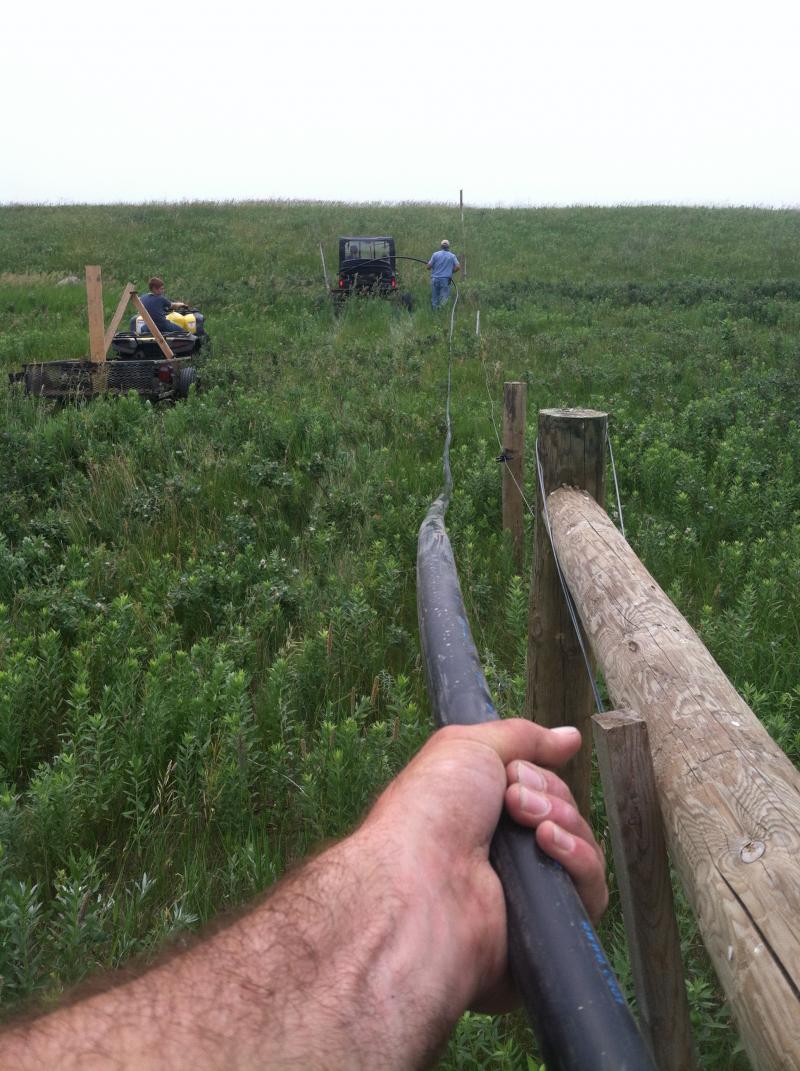
Above-ground water systems have become a very popular tool to deliver clean water from reliable sources to pastures across South Dakota. Above-ground pipe systems have, in general, a few things in common. The type of pipe used in these systems is not the common black pipe found at home improvement stores. Flexible, above-ground pasture pipe is made of high-density polyethylene (HDPE) and is usually rated at 160 pounds per square inch (psi). This is a very tough material that can withstand being driven over by lighter vehicles. Some producers even allow water to freeze in these pipes (although this isn’t necessarily recommended). Pipe size can vary depending on application, with 1-inch, 1 ¼-inch, 1 ½-inch and 2-inch pipe being popular in our region.
Above-ground systems also offer many components including T’s, elbows, valves, drain ports and other compression fittings with large, threaded collars that are designed to be installed by hand, allowing for quick coupling and decoupling of components. Compression fittings are generally rated at 200 psi.
We contacted Rick Smith, owner of PastureWorks out of Hayti, South Dakota, for additional clarification on the use of above-ground pipe systems. Smith cautions that producers and installers should pay attention to the type of pipe they purchase, and they should design their systems components accordingly. The pipe can either be manufactured to inside or outside diameter tolerances. Both can work, but it is important to know what type of pipe has been ordered so that the correct couplers are purchased to match the pipe. Pipe manufactured based on inside diameter tolerances can have some variations in outside diameter, and thus the correct couplers should be used to avoid difficulty in installation.
Price differentials for inside vs. outside-tolerance pipes can be significant as can that of inside vs. outside tolerance compression fittings. So, a word of caution: ask these questions of your supplier before you make the purchase. Many of us have assumed some of the new fittings on the market from different manufacturers are universal, but it turns out they are not!


